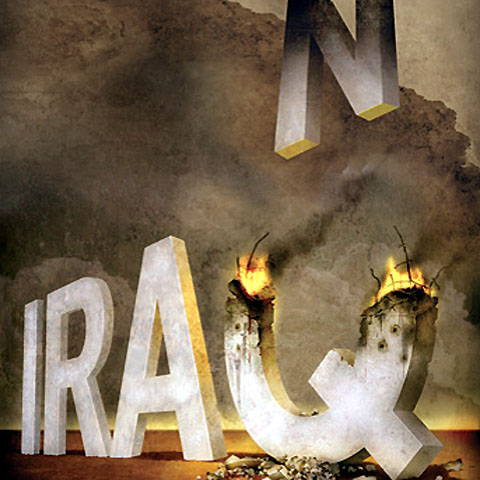www.islandbreath.org ID#0817-10
SUBJECT: WAR WITH TEHERAN
SOURCE: DAVID WARD sayjaz3@hotmail.com
POSTED: 27 MARCH 2008 - 2:30pm HST
American attack on Iran nears

It's The 'Oh Shit!' Moment On Iran |
Operation Cassandra Bush thinks he's overheard Petraeus ordering dinner – as, for Bush, he has. |
Worried Yet? Saudis Prepare This potential death toll is not pacifist hyperbole; it comes from a National Academy of Sciences study sponsored by the Pentagon itself, as The Progressive reports. (Although Bush's military brass like to peddle the public lie that 'we don't do body counts' of the enemy, in reality, like all good businessmen they keep precise accounts of
their production outputs: i.e., corpses.) The Pentagon's NAS study calibrated the kill-rate from 'bunker-busting' tactical nukes used to take out underground facilities – such as those which house much of Iran's nuclear power program. |
| US deploys nuclear sub to Persian Gulf Monday, 24 March 2008 in www.thenews.com An American nuclear submarine has crossed the Suez Canal to join the US fleet stationed in the Persian Gulf, Egyptian sources say. Egyptian officials reported that the nuclear submarine crossed the canal along with a destroyer on Friday and Egyptian forces were put on high alert when the navy convoy was passing through the canal. An American destroyer recently left the Persian Gulf, heading towards the Mediterranean Sea; earlier on Thursday, a US Navy rescue ship crossed the canal to enter the Red Sea. " The deployment comes as recent reports allege that US Vice President Dick Cheney is seeking to rally the support of Middle Eastern states for launching an attack on Iran. This is while US officials deny that Cheney’s Mideast tour is linked to a possible military attack on Iran. According to the latest reports, in recent months a major part of the US Navy has been deployed in and around the Persian Gulf. Meanwhile, Iran on Sunday rejected French President Nicolas Sarkozy’s comments on the necessity to build a strong deterrent against new security threats posed by nuclear-armed Islamic states, a news agency reported. Speaking on Friday at the launch of the fourth of France’s latest generation of nuclear-armed submarines, Sarkozy said Iran was “increasing the range of its missiles while serious suspicions weigh on its nuclear programme”. But Iranian Foreign Ministry spokesman Mohammad Ali Hosseini insisted Iran was a source of peace and stability in the Middle East. “Iran has upgraded its capabilities (and) drawing a parallel between these achievements and possible threats against other countries is inappropriate and invalid,” the students’ news agency ISNA quoted Hosseini as saying. Iran, locked in a standoff with the West over its nuclear plans, had previously boasted it had missiles that could sink” big warships” in the Gulf, a region where US aircraft carriers and warships operate. Iran’s Shahab-3 missile, with a range of 2,000 km is capable of hitting Israel and US bases in the Gulf, Iranian officials say. Iran has refused to recognise Israel since the 1979 Islamic revolution toppled the US-backed Shah. Tehran said in November it had built a new missile with a range of 2,000 km, a step analysts said could add more power to its conventional arsenal when tensions over its atomic plans are rising. The West accuses Iran of trying to acquire nuclear weapons under cover of a civilian programme. Iran denies the charges, saying it only wants to generate electricity to meet the country’s booming demand. The U.N. Security Council has imposed three sanctions resolutions against Iran following Tehran’s failure to suspend its nuclear activities, as demanded by the council. Hosseini said Iran posed no threat to any country. “Iran’s foreign policy is in line with international regulations and laws,” he said. |
see also a sample of one article a year:
Island Breath: Drumbeat for War with Iran 11/2/07
Island Breath: Iran War Countdown 3/1/07
Island Breath: Put End to Iraq and Iran War 1/20/07
Island Breath: War with Iran already begun 4/14/06